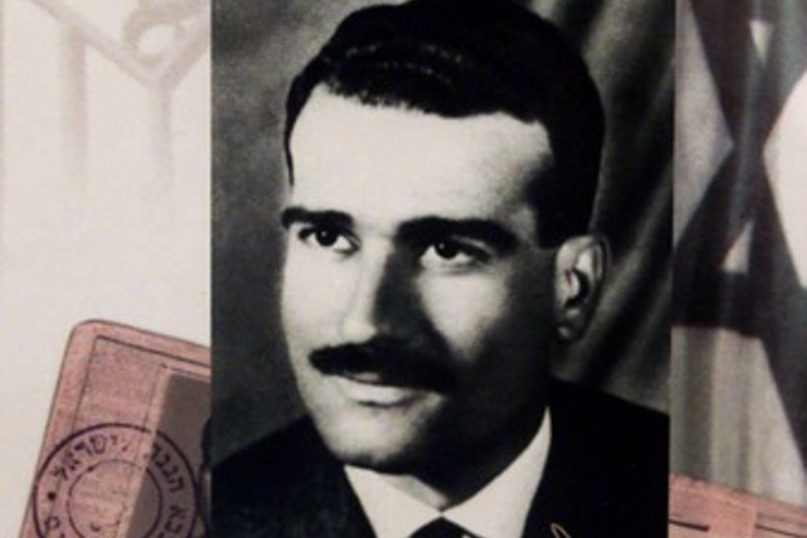
(JNS) Rumors circulated on Sunday, April 14 that a Russian team, possibly assisted by Syrian opposition groups, had extricated the remains of venerated Israeli spy Eli Cohen, evacuating him from Syria in an Israeli coffin and preparing to return him to Israel.
The legendary “our man in Damascus,” Cohen spied on the Syrian military establishment for four years after befriending top-level officials under the alias Kamel Amin Thaabet. After being discovered by KGB operatives, he was tortured by the Syrians before being executed on May 18, 1965. In Israel, his name became synonymous with self-sacrifice and heroism, the information he provided was fundamental to Israel’s victory in the Six-Day War.
Israeli officials have kept silent regarding the reports, which came in just two weeks after Sgt. 1st Class Zachary Baumel was buried on Mount Herzl, 37 years after he went missing during a battle of the First Lebanon War. Baumel was also exhumed by Russia, and his personal effects were honored in a special ceremony in Moscow attended by Israeli Prime Minister Netanyahu.
Since Cohen’s execution, widow Nadia Cohen has been working to bring his remains home, but to no avail. Last year, Nadia was presented with her late husband’s wristwatch by the Mossad intelligence agency, an article retrieved in a special operation. In March, she told Israel Radio that the late Mossad chief Meir Dagan had approached the United States for help in obtaining Cohen’s remains in 2011, during the Syrian civil war.
Eli Cohen posed as a rich Arab merchant from Argentina and developed close ties with Syrian elites, nearly being named Syrian Deputy Minister of Defense.
In 1967, Eli told a Syrian officer to plant eucalyptus trees near Syrian fortifications in the Golan Heights so Israel would believe they were leisure sites for Syrian soldiers. He subsequently alerted Israel that Syrian fortifications would be demarcated with eucalyptus trees, a piece of intelligence that enabled Israel to conquer the Golan Heights in just two days.







 Southern New England Jewish Ledger
Southern New England Jewish Ledger














